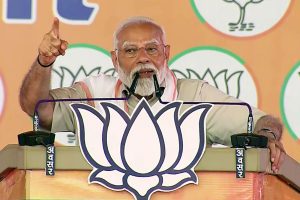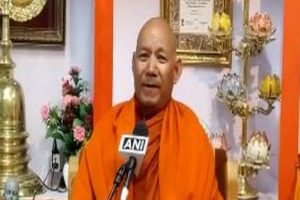Deaths from opioid overdose have reached a crisis level in the United States exceeding 100,000 per year. The problem of addiction to opioids such as OxyContin and resulting overdose deaths have been known for more than a decade. Such deaths are gradual progressions in which a person is first prescribed pills for pain resulting from injury or surgery, then he/she gradually gets addicted, undergoes various treatments and rehab, and finally succumbs to death from an overdose. The new drug Fentanyl, on the other hand, seems like an immediate killer. There are numerous reports of young people taking Fentanyl and dropping dead in a very short time.
In addition to overdose, drug addiction causes havoc on the family’s emotional and financial condition and contributes to homelessness.
It is shocking that there is no campaign on TV or social media alerting parents and teenage children to the danger of addiction and eventual death from these pills. It is assumed to be well-known because almost everyone knows someone who died of an overdose. I do not see the slogan “Say no to drugs” from yesteryears anymore. My daughter, a medical doctor and an attentive mother to two pre-teen children, told me that she cannot find anything in the school curriculum or library that would provide the kids with an understanding of the perils of drugs.
There was a mini-series titled “Dopesick” on the streaming service “Hulu” based on a book by Beth Macy in 2021; it had eight episodes. It won critical acclaim and several awards. I wonder why a similar series or perhaps even a movie has not been produced by the mainstream media.
By contrast, the campaign against smoking was massive. Smoking is banned in all restaurants and most public places throughout the country. Cigarette companies are not allowed to advertise their products on TV. Even if the smoker did not care about own health, the danger of second-hand smoke was widely publicized. Pharmacies have dedicated sections on nicotine patches and other aids to help quit smoking.
I chuckled at the recent report of development of a vaccine to battle Fentanyl addiction. Big pharma made a ton of money in the process of bringing the opioids crisis to mainstream households. Now they would probably make another round of mega profits by selling vaccines.
In my opinion, if we want to fight the epidemic of drug addiction, we must first address alcohol addiction. It is not smoking cigarettes but drinking alcohol which is the first step towards getting addicted to drugs.
Just look around; alcohol is everywhere. In homes, social gatherings, grocery stores, restaurants, night clubs, picnics, flights and terminals, festive parties, ball games and of course bars on every street corner. There are plenty of “happy hours” to drink alcohol at a discount. Some people pretend that it is harmless to drink beer and wine as opposed to hard liquor, which is a silly distinction; it is the amount of alcohol content that matters. One beer might be harmless but not four or five.
Alcohol sales have soared over the years. It was prohibited on Sundays in some American states but now that restriction is gone. Grocery stores have added new aisles dedicated to alcohol. The number of wine stores, variety and brand names in the alcohol business are increasing by the day. Unlike cigarettes, advertising for alcohol is allowed on TV as long as it does not promote “irresponsible” drinking, whatever that means.
Unfortunately, alcohol consumption is universal across the globe and the practice has been going on probably from the time a human being first tasted fermented grapes. In Western societies it is part of the culture. If you invite people to a social gathering at your home, they would be surprised, if not offended if you do not serve alcohol with dinner. It is not just the Americans; the French, the Germans, the Italians, the Greeks, the Irish and Scottish are all famous for their love of alcohol throughout history.
In India, drinking alcohol, especially home-made liquor was always common among poorer people, engaged in labour-intensive work. Now with economic prosperity and westernization, it has entered the daily lives of the upper middle-class. The Japanese are into heavy drinking after work. Suited businessmen often stumble on the train platform late in the evening on their way home after a round of drinking with colleagues. The Russians are the inventors of vodka – a rather strong drink. Even in Muslim countries sale of alcohol is not completely banned except for conservative countries like Saudi Arabia.
I have six major objections to drinking alcohol. First, it changes a person to someone else. This new person often behaves irrationally causing embarrassment and inconvenience to others, if not altercations thus spoiling the occasion. Secondly, excessive drinking is bad for health; its effect on the liver is well-documented. Thirdly, it is expensive and adds an unnecessary burden to one’s budget, which gets bigger as the addiction sets in. Fourth, the influence of alcohol can lead to unintended intimacy and unwanted pregnancy, which could lead to abortion, suicide, diseases, end of career/education, especially among teenagers, as well as divorce among married people.
The fifth reason is drunk driving resulting in deaths and injuries not to mention property damage and excessive workload on police forces. However, it is the sixth reason I dread most. Alcohol is the gateway to drug addiction. A person who enjoys drinking alcohol and associated relaxation/ change in mood is very likely to try a drug to take him to the next level. This progression continues.
After opioid, the addiction escalates to heroin, morphine, methamphetamine, cocaine etc. and eventual financial destitution and homelessness.
Drinking alcohol also sets a bad example to adolescent children. They think that if their parents feel good by having an alcohol addiction, why not experiment with smoking marijuana or taking some pills? Alcoholic parents are often oblivious to their children’s addictions. An even worse situation is when people start mixing alcohol with prescription pills. I have seen people under such influence; they look like zombies under a strange spell. To make matters worse, marijuana has been legalized in most states.
Sadly, no report about negative consequences of alcohol consumption would make any difference. Selling alcohol is a major worldwide business with billions of dollars and millions of jobs at stake. Alcoholic drinks are socially acceptable and stimulating which cannot be replaced with anything else. As a result, we will never be able to run an effective and convincing anti-drug programme. Growth in alcohol sales, increase in opioid overdose deaths and rampant homelessness in major cities are all related.
I can only make a dire prediction: an entire generation of Americans would be “lost” in the next few decades from recreational drugs. Not all of them would die from overdose. Some will become brain-dead and unable to have enough faculty to conduct useful functions. Some will not reach their full potential or have psychological problems. Some will become lazy with total aversion to hard work. Some will be homeless.
The Indian diaspora seems to be relatively free from this drug epidemic and might even benefit in securing important jobs at various levels because of lack of competition from their native counterparts. However, they must resist the temptation to drink excessive alcohol in their effort to become Americanized; alcohol would lead them to drugs.
On a personal note, I do not smoke, drink nor do drugs. However, I do have one addiction: caffeine (tea/coffee). Fortunately for me, it does not kill.
(The writer, a physicist who worked in academia and industry, is a Bengali settled in America.)











